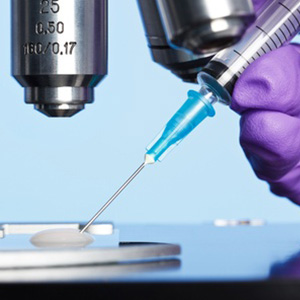
Infertility
Assisted Reproduction & IUI
Couples with female or male infertility are counseled for both medical and surgical causes of infertility. We offer treatment for ovulatory disorders and other endocrine problems that cause infertility. Endoscopy & surgical management of infertility is also carried out. We have a large series of endoscopy including operative laparoscopy and hysteroscopy.
The science of Assisted Reproduction has moved forward by leaps and bounds. The Department of Assisted Reproduction & Genetics has endeavored to help infertile couples, to have normal babies. We pledge to help couples realize their dream of having a healthy child.
IUIOnce known as artificial insemination, intrauterine insemination (IUI) is the process by which sperm is deposited in a woman's uterus through artificial means.
For many couples, this is a less invasive and more affordable alternative to IVF. Explaining IUI will give you a general overview of the process. However, IUI is not the only artificial insemination procedure performed. In addition to IUI, individuals with fertility problems may elect to try intravaginal insemination (IVI), intracervical insemination (ICI), or intratubal insemination (ITI).
Sperm used in IUI must first be properly prepared. This proces is known as sperm washing. Just how far in advance the sperm you are using in your procedure is prepared can influence the chances of success with this procedure. Of course, as with any form of infertility treatment, there are variable factors that can affect how successful this treatment will be for you. While some couples may use their male partner's sperm, other couples may choose to use a sperm donor for deserving reasons with due consent.
Explaining IUIMany people have heard of artificial insemination, also known as intrauterine insemination or IUI, but don't entirely understand how it is done. If you are considering this form of infertility treatment, read on to learn more about IUI.
Placing the Sperm
The IUI process is when a very thin flexible catheter is inserted through the cervix and washed sperm is injected into the uterus. Most women consider IUI to be fairly painless, along the same lines as having a pap smear. There can be some cramping afterward, but often what is felt is ovulation-related rather than from the IUI. The catheter often isn't felt because the cervix is already slightly open for ovulation You will be given instructions on how long beforehand and afterwards to abstain from intercourse, and any resting periods after the IUI.
When Should it be Done?
Ideally an IUI should be performed within 6 hours either side of ovulation (for male factor infertility, some doctors believe after ovulation is better) with the sperm waiting for the egg. When timing is based on an hCG injection, the IUIs are usually done between 24 and 48 hours later. Typical timing would be to have a single IUI at about 36 hours post-hCG. If two IUIs are scheduled, they are usually spaced at least 12 hours apart between 24 and 48 hours after the hCG.
If no use of drugs is done, then doctors will base timing of IUI on a natural LH surge. In that case, a single IUI at 36 hours is the norm, but doing them at 24 hours is also quite common.
Who is Suited to IUI?
IUI can help on Clomid cycles where cervical mucus is a problem, and IUI increases the chance of success on injectable cycles no matter what the sperm count. It does make sense to try IUI if you can and haven’t had success with intercourse.
Success and Costs
The success rates are reported to be just under 6% and as high as 26% per cycle. The low statistics are with one follicle, while multiple follicles resulted in as high 26% success. Costs for the actual insemination procedure alone can run anywhere from INR Rs. 4500 to INR Rs. 12500 each, with some clinics advising two inseminations per cycle.
Booking a visit
© 2017 Pushpaa Hospital

